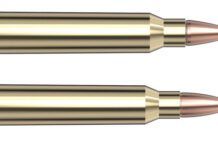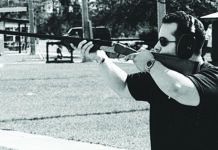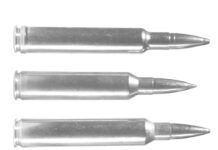A couple of issues ago (August 2022), I wrote in this space about the earth-shaking effect that the Supreme Court’s Bruen decision would have on the gun-control landscape. The decision, formally styled New York State Rifle & Pistol Association, Inc., et al. v. Bruen, was issued on June 23, 2022, and was written by Supreme Court Justice Clarence Thomas. It was decided 6-3. Now it’s time to see what’s changed, and not, since then:
On June 24, California Attorney General Rob Bonta directed permitting agencies to stop requiring a demonstration of “good cause” in order to obtain a concealed carry permit, as it was now “unconstitutional and unenforceable” under Bruen. He said the agencies could still use other gauges of suitability, like “good moral character.” This clearly subjective test will be the next domino to fall.
On June 24, New Jersey’s Acting Attorney General Matthew J. Platkin told prosecutors and law-enforcement agencies that the state’s “justifiable need” requirement was no longer enforceable under Bruen.
On July 1, Massachusetts Attorney General Maura Healey said that under Bruen, licensing authorities can no longer enforce the “good reason” provision of the state’s concealed carry law.
On July 5, Governor Larry Hogan directed the Maryland State Police to stop using a “good and substantial reason” standard, outlawed under Bruen, when evaluating concealed-carry permit applicants.
On July 12, the Firearms Policy Coalition announced that it had filed a new Second Amendment lawsuit challenging New York’s ban on so-called “assault weapons.” The complaint is called Vanchoff v. James. It will be interesting to see if Vanchoff cites the Texas Andrews decision mentioned on page 5 when the New York Vanchoff matter is resolved.
On July 22, Los Angeles Police Department Commander Ernest Eskridge directed sworn personnel to stop enforcing the state’s high-capacity magazine ban challenged in Duncan V. Bonta, which the Supreme Court vacated in light of Bruen. Until the case is decided, officers are not to “investigate, detain, or arrest” anyone suspected of possessing ammunition magazines that hold more than 10 rounds unless they are a prohibited purchaser.
On July 27, the Maryland Court of Appeals applied Bruen directly In the Matter of William Rounds. The Maryland State Police (MSP), who administer the state’s licensing scheme, denied Rounds a license based on MSP’s finding that Rounds lacked “good and substantial reason” to carry a handgun. The police said Rounds failed to provide documented evidence of an objective threat to his safety. The court found that this proper-cause analogue was unconstitutional after Bruen.
In Colorado on July 22, the town of Superior (about 13,000 population located northwest of Denver) was enjoined (stopped) by a Colorado federal judge from enforcing an “assault weapons” ban. The case was Rocky Mountain Gun Owners v. Superior. In the decision, Judge Raymond P. Moore wrote that “the Court is unaware of historical precedent that would permit a governmental entity to entirely ban a type of weapon that is commonly used by law-abiding citizens for lawful purposes, whether in an individual’s home or in public.” The decision cites Bruen several times.
On August 1, the Ninth Circuit Court of Appeals vacated a June 2021 ruling in Miller v. Bonta that struck down the state’s 30-year-old assault weapons ban, and sent the case back to U.S. District Judge Roger Benitez for reconsideration in light of Bruen. Benitez used the proper standard of “text, history, and tradition” in his initial ruling, so perhaps he’ll quickly rule against the ban again. Benitez said in his 2021 ruling that AR-15s are like Swiss Army knives, “a perfect combination of home defense weapon and homeland defense equipment.”
On August 19, the New York City Police Department issued guidelines for concealed-carry applicants to resubmit their applications if they had been denied because they couldn’t demonstrate proper cause. The guidelines also applied to people whose applications were still pending when the state’s new concealed-carry regulations took effect on September 1.
In Hawaii, as of August 24, the Maui Police Department’s Records Division had distributed 187 Concealed Carry Weapon license applications in 2022. The department said that 13 of those 187 have been submitted to MPD for processing. Most important, a single application has been approved — the first-ever license issued in the state. Before Bruen, it was virtually impossible for Hawaii gun owners to obtain a concealed-carry license.
In Texas, a federal judge in Fort Worth ruled that adults younger than 21 cannot be barred from bearing arms in self-defense. On August 25, United States District Judge Mark T. Pittman ruled in Andrews v. McCraw that a Texas law prohibiting adults younger than 21 from legally carrying a handgun violates the U.S. Constitution and cannot be enforced. Pittman cited Bruen, Heller, and McDonald in the decision. The judge stayed enforcement of his injunction for 30 days or until an expected appeal is resolved.
This is just a sampling of the fruits of Bruen. There are many other cases moving through the courts and permitting agencies.





























